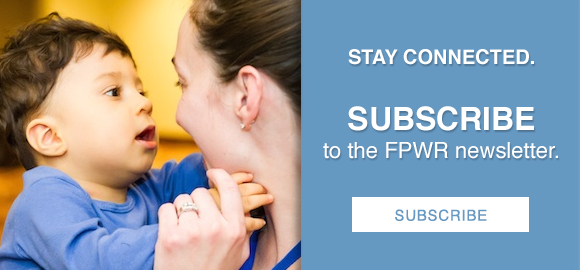Welcome to an inside look at some of the impactful research taking place to improve the lives of individuals with Prader–Willi syndrome (PWS). In this interview, four FPWR research team members—Theresa Strong, Lauren Schwartz-Roth, Marc Ridilla, and Lisa Matesevac—and IPWSO Board of Trustees President, Tony Holland, share updates on key initiatives advancing this year.
While this conversation only covers a small portion of our work, it offers a glimpse into meaningful progress made possible through your support. Watch the full presentation from our 2025 United in Hope Family Conference below, or read on for highlights and summarized responses.
VYKAT XR
Q: The Vykat experience provides a good example of how the rare disease community can support the development of new treatments. Can you give us some background on how FPWR and the PWS community in general supported this drug approval?
Summary (Theresa Strong): One of the most important ways the PWS community supported the approval of VYKAT was by engaging with the FDA early and often. Although the FDA knew of PWS, it didn’t fully grasp the day-to-day impact on individuals and families. Beginning in 2012, FPWR and PWSA worked together to build the FDA’s understanding of PWS and the burden of hyperphagia on people with PWS and their families.
Therapeutic Accelerator Program (TAP)
Q: Can you tell us about this program and some successes to date?
Summary (Marc Ridilla): The Therapeutic Accelerator Program supports research that defines what PWS is—at the molecular, cellular, and organ levels. Roughly half of funded projects focus on collecting these data. As technology advances, we refine our understanding, revealing new pathways and proteins that could become drug targets (via repurposed or novel treatments). We’ve seen a surge of promising ideas and are ensuring the best concepts are tested effectively.
Cognition and PWS
Q: What is FPWR doing to advance research aimed at improving cognition in PWS?
Summary (Lauren Schwartz-Roth): Improved cognitive function can significantly impact independence and quality of life. In other neurodevelopmental disorders, targeted treatments have shown promise; we believe similar progress is possible in PWS. This year, FPWR launched a focused cognition effort. We formed a small internal working group to review recent studies and interview experts. This foundation will support broader collaborations to address the most critical challenges.
Gene Therapy
Q: How has gene therapy advanced in recent years, and where are we with respect to testing in PWS?
Summary (Theresa Strong): Gene therapy is advancing rapidly—not only CRISPR but also other delivery systems. Big questions for PWS remain: Can we use these approaches in adults, and what impact would we see? Would treatment need to occur in newborns? These questions must be answered experimentally before moving into human clinical trials. Multiple gene-activation strategies are being explored to identify the most effective approaches for PWS.
VNS4PWS
Q: What have we learned about Vagus Nerve Stimulation use for people with PWS?
Summary (Tony Holland): In the first trial (implanted device), the three participating families reported promising reductions in challenging behaviors, which led to a second trial using a wearable device. In that second trial, four of five individuals experienced behavior reduction. VNS appears to help regulate the autonomic nervous system, improving emotional regulation and responsiveness during stress. While encouraging, larger studies are needed; we look forward to results from the larger FPWR trial to determine true effectiveness.
Q: It’s unusual for a nonprofit to conduct a clinical trial. The VNS4PWS study is large and expensive—why did FPWR take it on instead of a company?
Summary (Lisa Matesevac): FPWR took on this large, resource-intensive clinical trial because there was a clear unmet need and a lack of incentives for industry to lead such studies in the rare disease space. Our goal is to address the behavioral challenges families face with PWS. As we know, significant behaviors can be very negatively impactful on family life and they create notable challenges. We hope we can work to eliminate that as a challenge of living with PWS. We appreciate the commitment of the families participating and look forward to completing the trial soon.
Diversity in Research
Q: FPWR joined the Rare Disease Diversity Coalition and worked with the Clinical Trials Consortium to advance diversity and health equity. What key insights and recommendations have emerged?
Summary (Lauren Schwartz-Roth): Through these collaborations, we have gained valuable insights on how to increase advocacy and diversity in research as well as strengthened connections with other rare disease organizations. FPWR has also worked with the Clinical Trials Consortium on diversity in clinical trials. We created a report, which is available on our website, with recommendations on how to improve access and health equity in research.
Collaboration
Q: An important theme of our conference is United in Hope. How have FPWR and PWSA | USA collaborated on resources? The BOSS Study is a great example—how is it being used in our community?
Summary (Lauren Schwartz-Roth): Social skills can be especially challenging for individuals with PWS, but they can be taught and strengthened with the right support. FPWR is proud to have funded the development of BOSS, an online social skills program created by the team at Vanderbilt University to address the unique challenges faced by individuals with PWS. Through a collaboration with PWSA | USA , BOSS is now available nationwide, enabling virtual group participation for individuals across the country.
Final Takeaways
Q: How can the community get more involved in research?
Summary (Theresa Strong): There are many ways that the community can get involved with research. We invite the community to get involved by participating as grant advocate reviewers, enrolling in clinical trials, joining the global PWS registry, or contributing data to the clinician-entered CLIC Registry by visitng one of our CLIC clinicians. These efforts are vital to advancing research and improving outcomes for individuals with PWS.
For more details, watch the full session from the 2025 United in Hope Conference.







